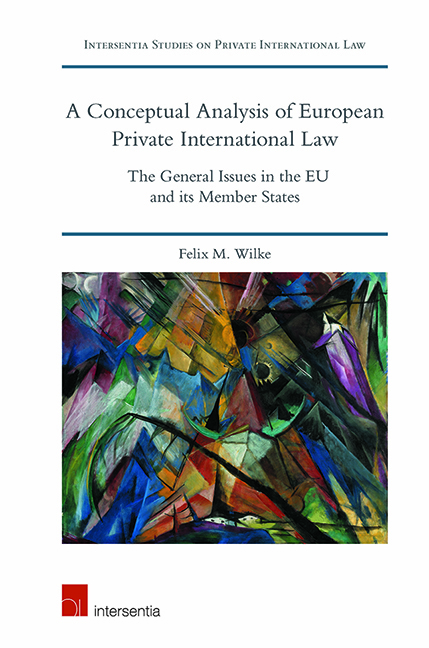 A Conceptual Analysis of European Private International Law
A Conceptual Analysis of European Private International Law Summary
This book has explored the concept of general issues and rules of private international law in the EU. It adopted a (not necessarily traditional) comparative perspective (Chapter 1), taking into account the domestic law of all member states, as well as EU law as it stands in Rome I, Rome II, Rome III, the Succession Regulation, the M-Property Regulation, and the RP-Property Regulation. The main findings can be summarised as follows.
DOMESTIC PRIVATE INTERNATIONAL LAW AND GENERAL ISSUES DE LEGA LATA
General rules of private international law in the EU: nihil sub sole novum. A majority of member states have a private international law code, be it part of a civil code, an act combining rules on the applicable law with rules on jurisdiction and more, or a stand-alone legal instrument. Every single one of these codes contains a set of provisions on issues commonly considered “general”. These provisions oft en even constitute a formally separate chapter whose title, in turn, oft en officially designates them as “general”. In any case, these provisions always form an identifiable cluster. The size of these sets varies, however. Some consist of only a handful of provisions, whereas the number of provisions in others is in the double digits.
Moreover, particularly in the common law and French tradition without private international law codes, scholars have separated entire classes of issues from their discussion of individual conflicts rules. Empirically, the respective issues and the issues covered by general provisions in other member states ‘ codes overlap to a great degree. In fact, the very designation “general” surfaces here and there in scholarly works on private international law, albeit in the vast majority of instances without any conceptual explanation (Chapter 2, section 2.1.).
EUROPEAN UNION PRIVATE INTERNATIONAL LAW AND GENERAL ISSUES DE LEGE LATA
Six regulations on separate areas of law make up the bulk of EU private international law. While they do isolate entire chapters from their sets of particular conflicts provisions, they do so neither uniformly nor according to any obvious pattern. Still, several of the provisions contained in these chapters correspond to issues with which domestic private international law deals by using provisions designated as “general ”.
- Type
- Chapter
- Information
- A Conceptual Analysis of European Private International LawThe General Issues in the EU and its Member States, pp. 353 - 364Publisher: IntersentiaPrint publication year: 2019


